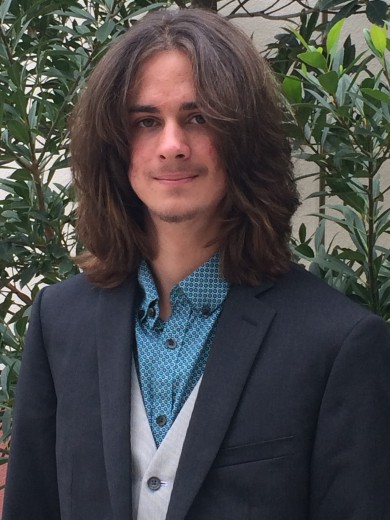Miami Piano Fest Academy closes with winners in epic finale
In a nearly three-hour finale concert on Sunday at the Miniaci Performing Arts Center on the campus of Nova Southeastern University in Davie, the Miami International Piano Festival Academy displayed the results of the past three weeks of keyboard seminars as many of the academy’s fellows played solo works and duos with faculty member Francesco Libetta. The level of talent and musicianship was consistently high. Clearly study and coaching with the experienced faculty had enhanced the gifted players’ technical facility and musicianship.
In the modern auditorium’s clear acoustic, faculty members Zlata Chochieva, Misha Dacic and Libetta provided the curtain raiser with Carl Czerny’s six-hand transcription of the Overture to Mozart’s The Marriage of Figaro. The threesome’s expert coordination and full-tilt energy was tempered by the touch of grace Chochieva brought to the second subject.
Eschewing familiar keyboard standards, Jacob Mason adventurously rendered Henry Cowell’s Three Irish Legends. Cowell was one of the true originals of 20th-century American music. From the first notes, Irish-tinged themes are spiced by clanging dissonance and Cowell’s signature tone clusters. The son of University of Miami composition professors Dorothy Hindman and Charles Mason, Jacob Mason skillfully conquered the score’s intricacies, playing with polish and bracing intensity. Hitting the keyboard with his arms and elbows as he whirled through the cluster chords, he never allowed the modernist technical challenges to distract from the dark tonal images of Cowell’s unique vignettes.
Count Catherine Ma’s performance of Liszt’s Transcendental Etude No. 4 (“Mazeppa”) as another of the program’s high points. With a display of sheer pianistic power and accuracy, Ma took no prisoners, tearing into Liszt’s stormy writing with unrelenting force and high-wire intensity. She also brought huge contrasts of tonal color to the melodic surges of the central section. What can sound bombastic in mundane performances was thrilling under her fingers.
There were more Lisztian fireworks from Junhao Wang with a big-boned rendition of the Hungarian Rhapsody No. 6. Wang’s exquisite light touch and personalized phrasing of Liszt’s quirky turns was as impressive as his rapid articulation in the bustling final section.
Sinciana Mircea contributed a flowing, finely pointed reading of Ravel’s Jeux d’Eau, capturing the Gallic atmosphere. Sebastian Salvaterra brought out the poetic and brilliant sides of the first movement of Chopin’s Sonata No. 3 in B minor.
Despite some overly percussive playing, Yichih Lu had the speed, dexterity and sense of devilish fun for Liszt’s Grandes Etudes de Paganini Nos. 5 and 6. Leonid Nediak, just 13, gave a straightforward performance of Rachmaninoff’s Vocalise (in Earl Wild’s fine transcription), showing idiomatic affinity for the rhapsodic strains of the central episode. (Nediak will play a recital as part of the festival’s Discovery Series next May.)
The hard-working Libetta played four-hand duos with several of the young pianists. In two movements from Debussy’s Petite Suite, Salvaterra and Mircea were his alert partners, expertly navigating the rhythmic turns of Debussy’s charming cameos. Hideomi Sakaguchi and Libetta were utterly delightful in a light-as-a-feather version of Grieg’s Norwegian Dance No. 2. The wilder rhythms and surprising harmonic astringency of the first of the dances in Grieg’s set were fervently served by Oliver Chan, partnering Libetta. There was plenty of fire and volatility in Libetta and Mason’s high-speed ride through a bravura Tarantella by Nikolai Rubinstein, one of that pianist-conductor-pedagogue’s rare forays into composition.
On the program’s second half, it was the turn of the faculty members to strut their pianistic chops. Libetta made the piano really sing in his own transcription of the Quartet from Verdi’s Rigoletto. In the middle of their duo perusal of Schubert’s Marche Militaire, Libetta and Ilya Itin switched places on the piano bench. The aristocratic pulse and bubbly momentum of their playing was as delightful as their comedic interplay. The brooding undertones and rounded melodic lines of Tchaikovsky’s Meditation were given spacious depth by Itin while his bell-like touch and limpid shaping of Tchaikovsky’s Music Box was a welcome respite from more straitlaced renditions of this charmer.
Misha Dacic captured Federico Mompou’s brand of Latin languor with Cancion and he exuded the stylish flair of a studio pianist in a bluesy take on Alejandro Dolina’s El Vals del Duende, the coolly swinging arrangement by Pablo Ziegler. Chochieva concluded the marathon concert with a repeat of her powerhouse reading of Liszt’s Czardás macabre which she played at her academy recital two weeks ago.
Following the performances, the winners of the academy’s concerto competition were announced. Sijing Ye, Yi-Chih Lu and Jacob Mason will open next summer’s concert series in a concerto evening with orchestra. Academy fellows Mircea and Roger Shen will perform recitals during the festival’s 2016-2017 season.
Posted in Performances
One Response to “Miami Piano Fest Academy closes with winners in epic finale”
Leave a Comment
Mon Jul 25, 2016
at 4:29 pm
1 Comment






Posted Jul 25, 2016 at 9:50 pm by sally wood johnson
This is my first introduction to your programs. I look forward to hearing more of Jacob Mason